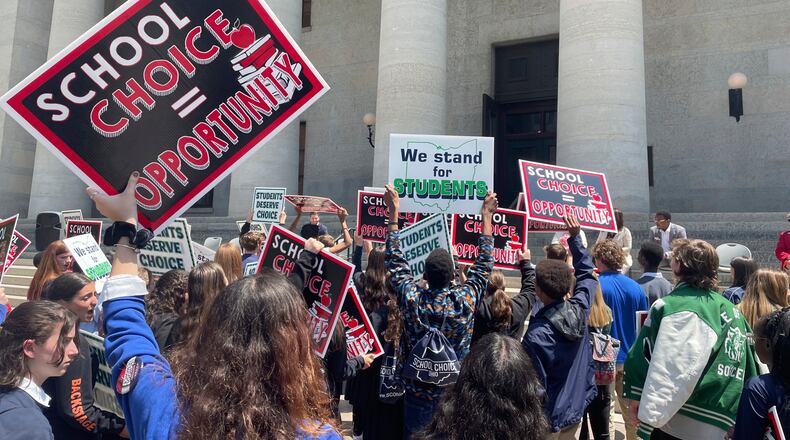In today’s Ideas & Voices, contributors argue for and against the expansion of Ohio’s school voucher program.
No decision is more local than parents choosing a school for their children
People of goodwill can reason that a values-neutral school option, which has been used as a counterargument to the school choice movement, is itself an embrace of a certain set of values. The reality is that educators and administrators make decisions every day about how children should learn, what should be taught, and which behaviors and attitudes should be corrected and which should be affirmed. Ideological impartiality is a myth in an educational setting.
Families of modest means are too often trapped in the school assigned by their zip code, even if it contradicts their values. If a family believes truth is objective, they should have access to a school that teaches it. Without equitable funding, we deny the poor and working-class the fundamental freedom of directing their children’s education—a freedom the wealthy take for granted.
- Matt Daniels is the Superintendent of Schools for the Archdiocese of Cincinnati.
Credit: kari bowman
Credit: kari bowman
Ohio’s public common school system continues to be unconstitutional
Article VI, section 2 clearly states that the General Assembly shall secure a thorough and efficient system of common schools by taxation or otherwise. Section 3 of the same article requires the state to make provision for the organization, administration, and control of the public school system of the state supported by public funds. The second clause in Article VI, section 2 forbids any sect, religious or secular, from controlling any part of the school funds of the state. Article I, section 7 forbids tax funding of religious education. EdChoice voucher proponents gloss over these constitutional provisions as though these provisions are mere suggestions.
The State’s public common school system continues to be unconstitutional. The recently adopted Cupp/Patterson school funding plan could have passed constitutional muster had it been fully funded from the beginning; but some voucher enthusiasts in the legislature chose to divert public school funds to the EdChoice voucher scheme without regard to their constitutional responsibility for public education.
About the Author



